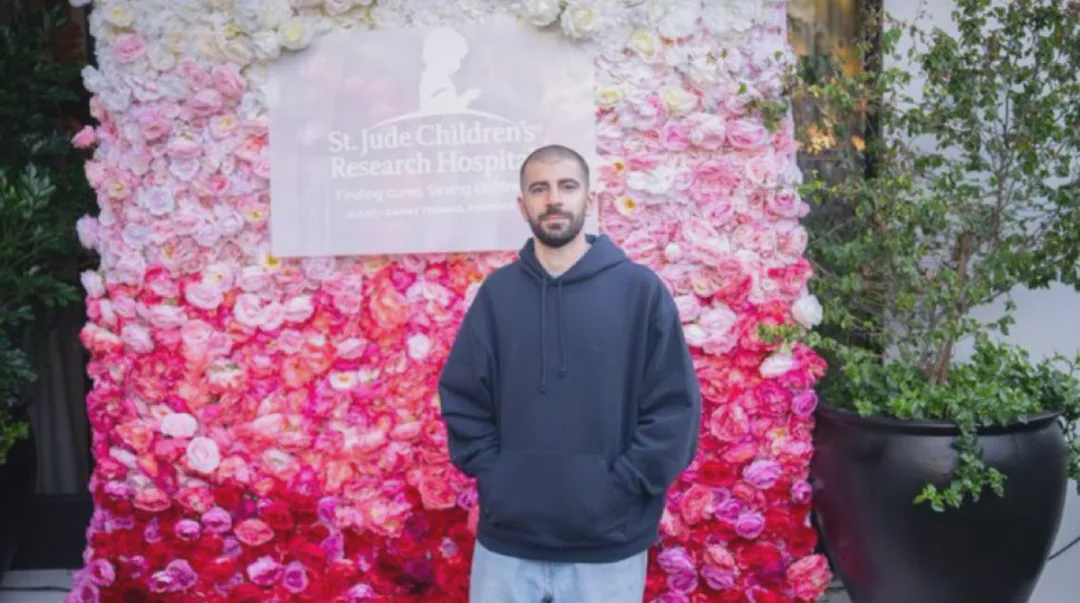
What if your cryptocurrency habits could change lives? That's the mission of Donate.GG, a brand new blockchain-native donation platform that raised over $600,000 for organizations like St. Jude Children's Research Hospital in its first year, without charging a penny in fees.
Leap is an early crypto content creator and builder, as well as the founder of Donate.GG, a new platform that allows people to send cryptocurrencies directly to non-profit organizations, including ETH, BTC, SOL, and USDC.
Inspired by his father's battle with cancer, Leap launched the platform in 2024, aiming to make crypto philanthropy more seamless, transparent, and convenient. Just a year later, Donate.GG raised hundreds of thousands of dollars in charitable donations and established its first significant partnership with Time.fun.
Time.fun is a Solana-based startup where fans can purchase tokenized access to creators' time, while creators can donate a portion of their income to charities.
As part of the launch event, Time.fun donated $352,000 in creator-directed donations to St. Jude Children's Research Hospital in June 2025, and Donate.GG ensured that these funds reached their destination in full.
We interviewed Leap to discuss his journey, the mechanics of crypto philanthropy, and why he believes anyone can be a philanthropist in web3.
Note: This record has been edited for brevity and clarity.
OpenSea: In simple terms, how does Donate.GG work, especially for those who have never used cryptocurrency before?
Leap: It's very simple. We are a free donation platform that processes cryptocurrency donations for charities. When someone donates through Donate.GG, 100% of the amount will be fully donated to non-profit organizations.
We wrote our own smart contract to support this feature, and donors can even choose to pay the gas fees or add tips to support the platform. So far, about 98% of donors have done this.
OpenSea: What makes cryptocurrency, particularly blockchain, a useful tool for philanthropy?
Leap: There are many reasons. First, global liquidity; cryptocurrency makes cross-border fund transfer easy, enabling us to support charities anywhere, especially those that previously couldn't reach U.S. donors. Secondly, transparency; every dollar can be traced. Third, cost savings; many donation platforms charge fees ranging from 3% to 5%, which adds up. For instance, the cost of one chemotherapy session at St. Jude Children's Research Hospital is $2,500, and every dollar saved is significant.
OpenSea: Your father's struggle with cancer was the initial inspiration for you to engage in this meaningful work. Anyone who accompanies a loved one through the cancer journey understands how profoundly cancer can change your life. However, it sounds like this mission has other fulfilling reasons for you - creativity, business, and possibly personal reasons. So, could you reflect on what prompted you to create Donate.GG? Why was March 2024 the best time to launch?
Leap: My father fell ill in 2020, and he was given a year to live but ended up living longer. During that time, I stayed home for a while but still felt helpless, so I moved to Los Angeles where I had opportunities. I felt very guilty because I was in Los Angeles creating content while he was going through all of this.
I initiated the first fundraising activity on my birthday in March 2024, and with just one tweet, we raised $110,000 in 24 hours. After that, St. Jude Children's Research Hospital reached out to me, inviting me to visit their campus in Memphis. Walking their grounds brought me to tears; that trip changed everything. I knew I had to keep going.
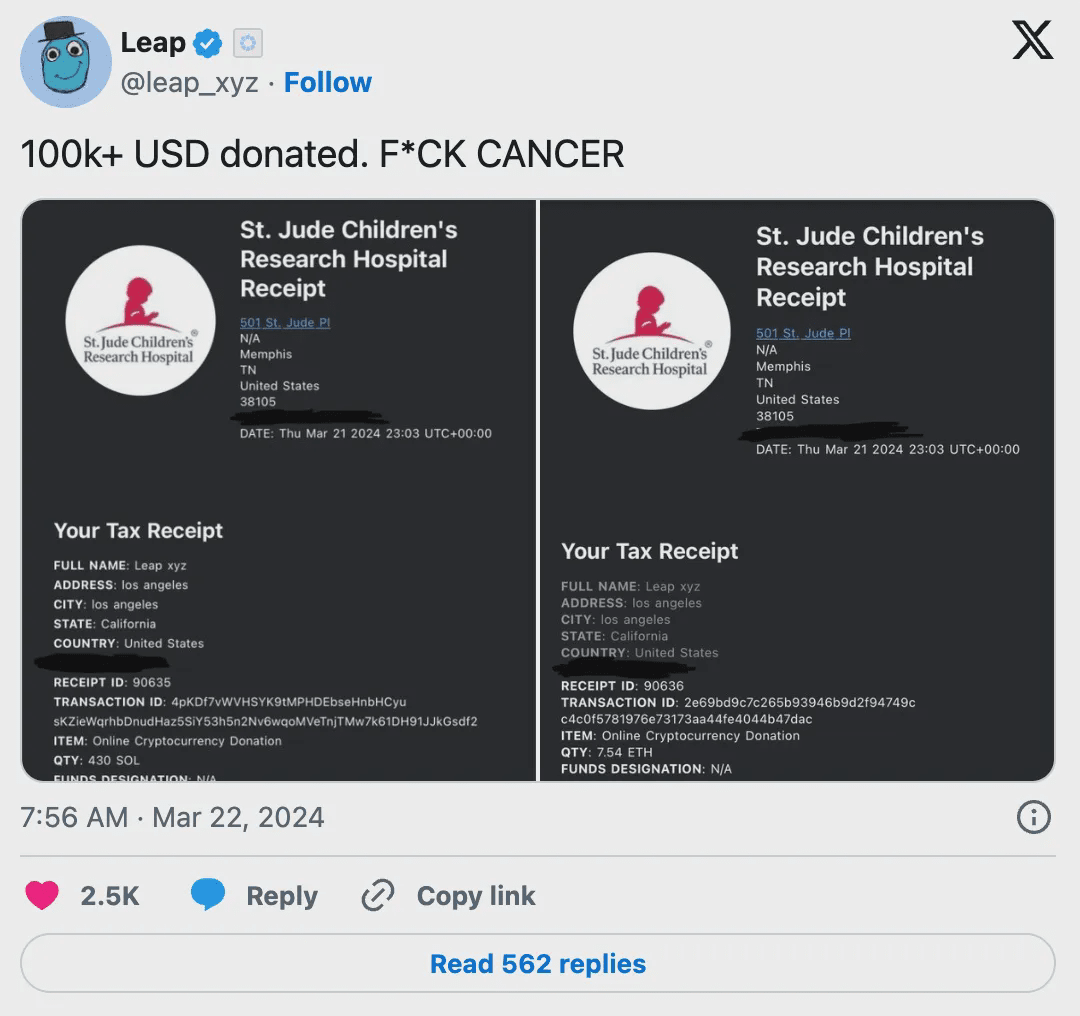
OpenSea: Did this lead to the Basel Art Fair auction?
Leap: Yes, in December 2024, we held a physical charity art auction at the Basel Art Fair, raising $250,000. However, the scale of this money was enormous: 30 artists participated, and there were travel and content filming expenses, all without sponsors. The whole process took months, and we filmed a complete documentary, which is pinned at the top of my Twitter because I think it's very important for my dad and family to know what I'm doing.
To be honest, they have no idea at all. I would tell them, 'Yes, we raised this much money.' They would say, 'Well...?' They had no idea what that meant. I would say, 'We're doing a project called 'Spaces'.' They would just nod in agreement.
The entire project has proven that our efforts are effective, but its intensity has also made me more inclined towards digitalization and collaborating with creators. Time.fun was born, where creators can tokenize their time by issuing 'minutes', and fans purchase these tokens to schedule time with them. A portion of these transactions (set by the creators) will be donated to charities. I saw an opportunity to ensure that donations safely reach nonprofits.
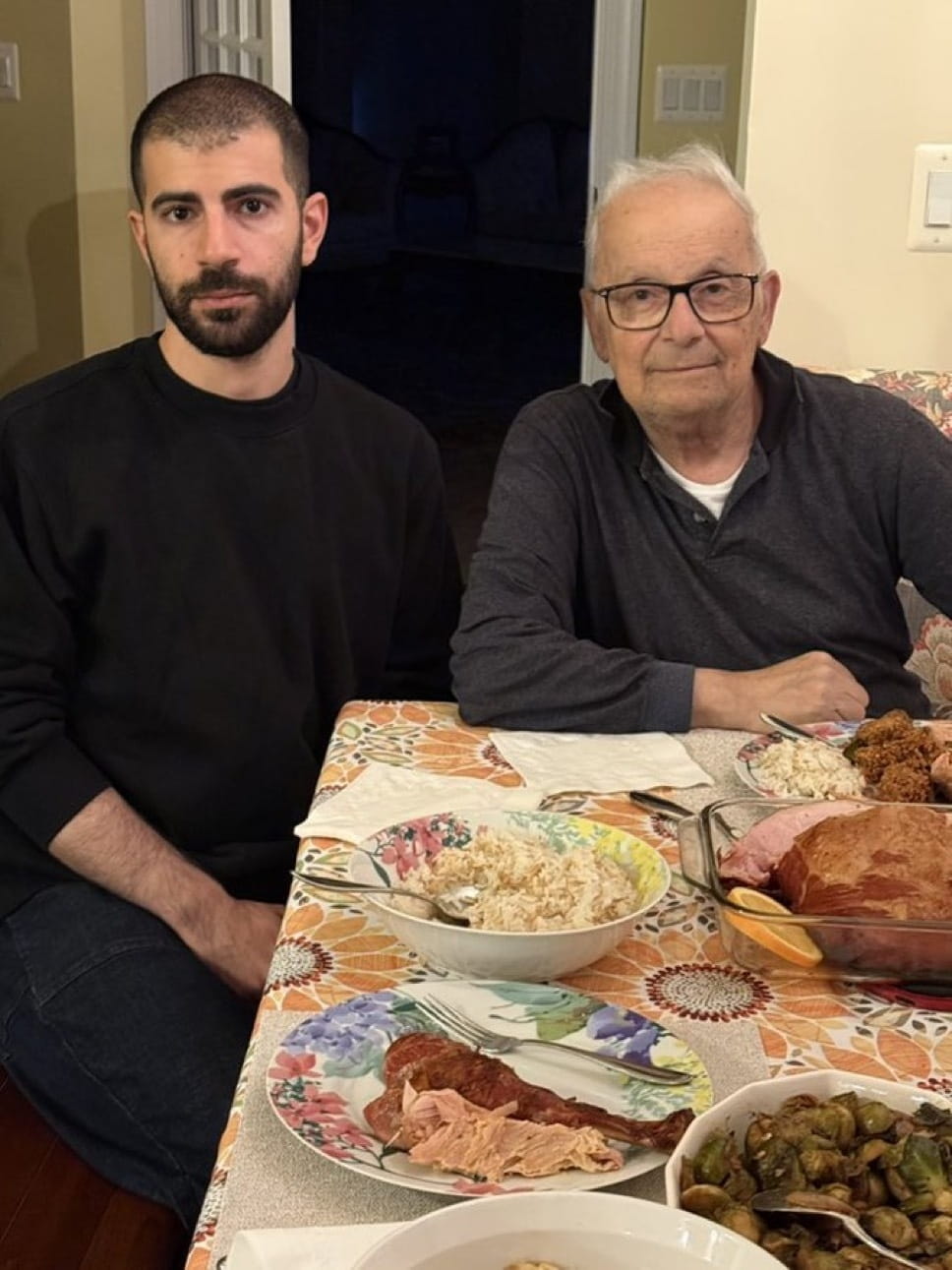
OpenSea: Leveraging online creator fanbases makes a lot of sense, especially as a supplement to offline events. So how did this collaboration ultimately come about?
Leap: The events took place at ETHDenver. I already knew that Time.Fun was developing a project to tokenize creators' time, and I noticed they had a charitable feature. I observed that Solana's founder, Toly, is also one of their founders and has dedicated 100% of his income to St. Jude.
I don't personally know anyone from Time.Fun, but I sent a DM to Pedro on their team requesting a call. I introduced myself by saying, 'I don’t know how you are currently handling donations, but I can assure you we’ll be cheaper – in fact, free. We'll cover all the costs, handle the backend, and use Fireblocks for custody; we’ll handle everything.' They agreed.
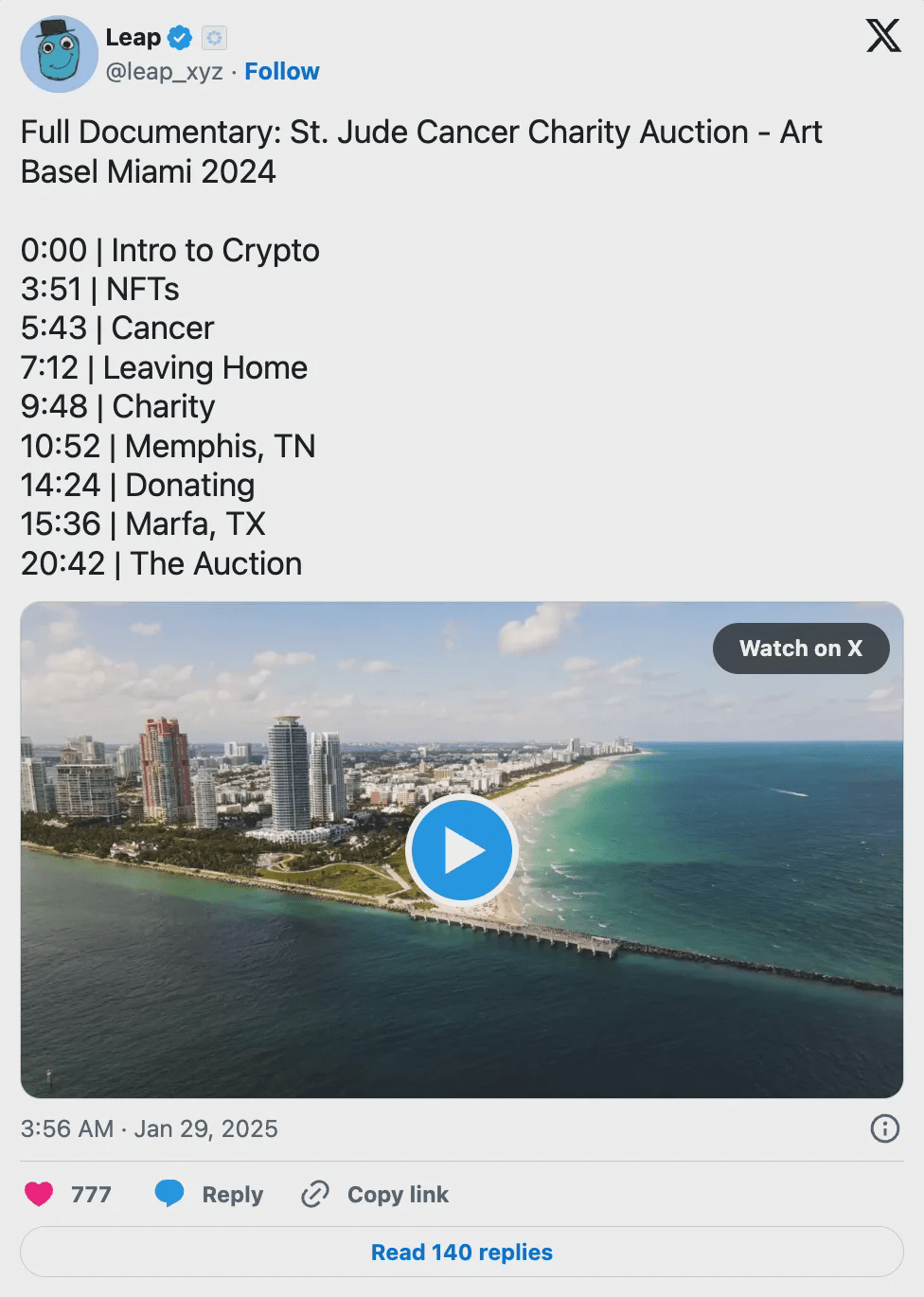
OpenSea: How was St. Jude's response? What has been your experience in onboarding new charities during this process?
Leap: We are currently closely collaborating with St. Jude Children's Research Hospital. I remember when I first met Mark, the head of their cryptocurrency department; I told him, 'I actually don’t want anything from you. I’m calling to tell you that I’m going to raise this money, and it will ultimately end up in your wallet.'
We persisted and earned their trust. Even though large organizations can be cumbersome, they publicly support us because we delivered. That’s what sets us apart, enabling them to confidently support us publicly, recommend us on Twitter, and engage with our content.
Right now, one of the most important things for us is that Donate.GG remains a carefully curated quality service. We work directly with non-profit organizations and are currently onboarding a new batch of members, which requires a lot of hands-on work.
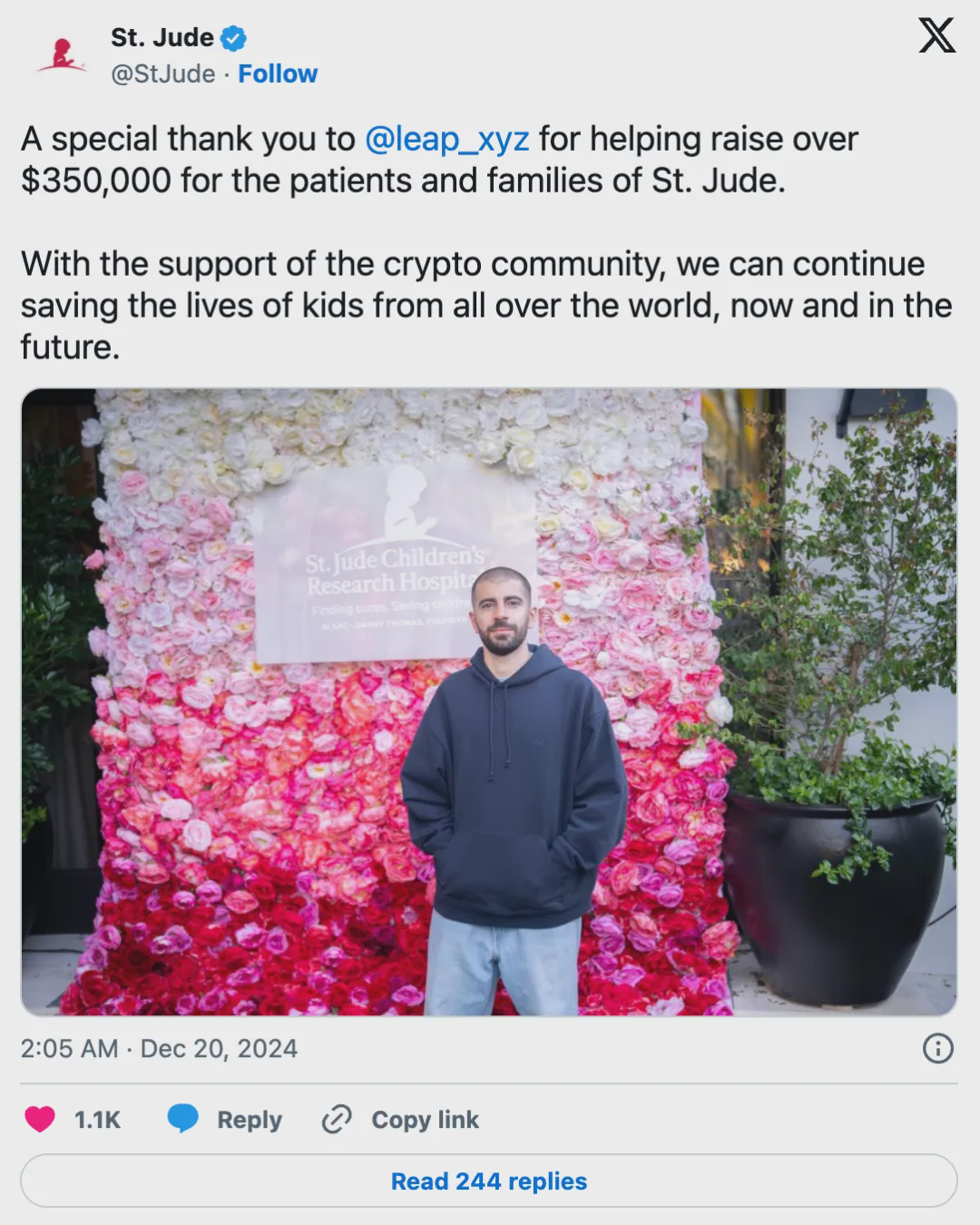
OpenSea: Because they all use different payment processors and website builders?
Leap: That's right. Currently, we just send funds to their Gemini or Coinbase accounts or any setup they use. But one of the most requested features we heard - especially during NFT.NYC - is, 'When can I start my own fundraising campaign?'
People ask, 'Can you open this platform so anyone can fundraise for any cause?' For example, you just go to donate.gg/yourname, and then there’s a live fundraising campaign that can be shared anytime, and that's what we are working on now.
OpenSea: So it's basically a decentralized GoFundMe?
Leap: Yes, that's right. Although there are already some great projects doing similar things and doing them well, I think our unique aspect lies in our distribution, marketing, and brand building. We know how to mobilize community power to contribute to social good.
One of the original concepts of Donate.GG is that anyone can be a philanthropist. Perhaps the first-generation self-made millionaire in this country embodies this idea. We usually associate the term 'philanthropist' with global elites like Bill Gates.
But in reality, it wasn't like that. Recently, at a meeting, someone walked up to me and said, 'Hey, philanthropist Leap!' I thought to myself - what the heck? But then I realized it sounds great.
I don't even want to be called that, but it suddenly struck me: anyone can be a philanthropist, and our job is to provide them with the tools to achieve that.
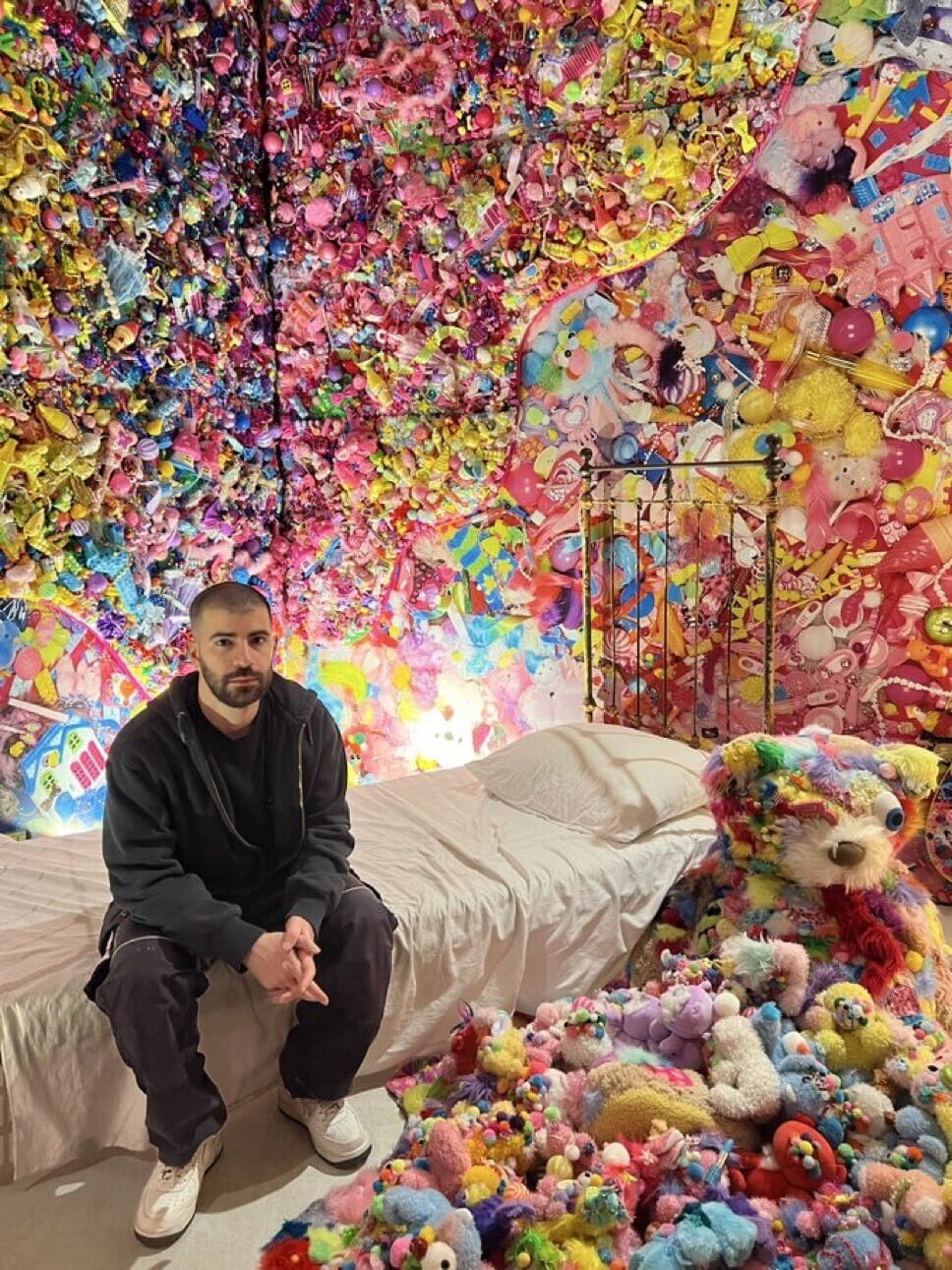
OpenSea: Are other creators or non-profit organizations involved in this?
Leap: Yes, Time.fun is very eager to collaborate with creators who wish to donate a portion of their income to social causes. Meanwhile, Donate.GG remains a white-glove service - we work directly with nonprofits and handle the heavy lifting, but the next step is to open up the platform.
OpenSea: What non-profit organizations are you looking forward to joining next?
Leap: We are currently in talks with some companies, and while no contracts have been signed yet, we received six or seven calls just last week, and everything is moving smoothly.
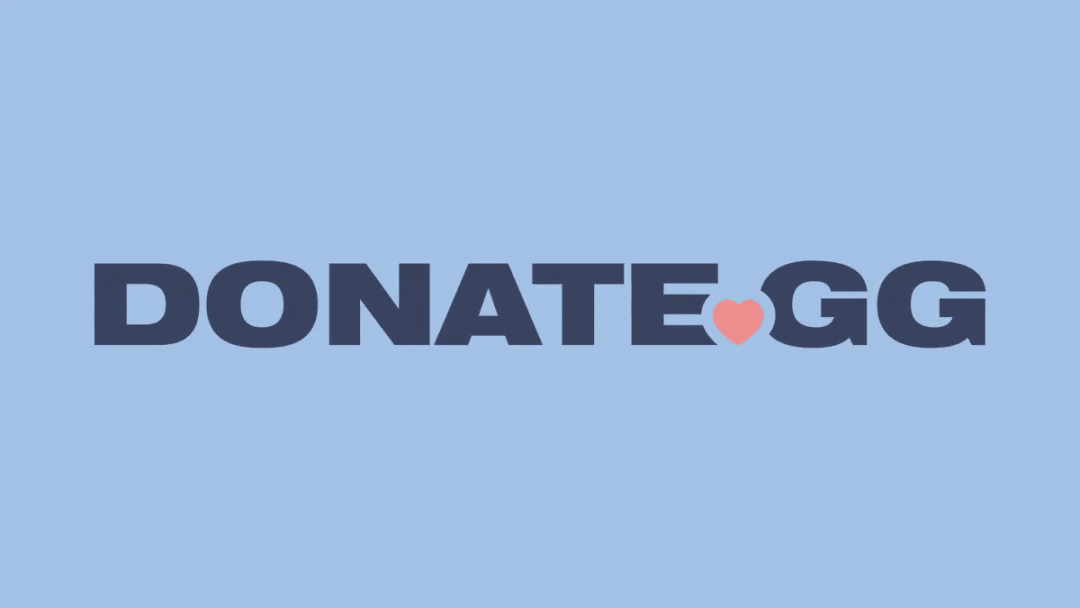
Content from OpenSea that you care about
Browse | Create | Buy | Sell | Auction

Follow OpenSea Binance channel
Stay updated with the latest news


